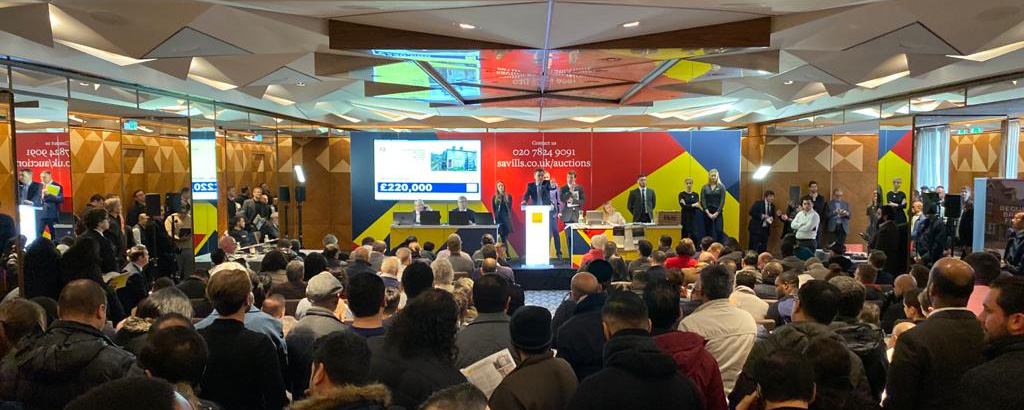If you’re new to buying properties at auction, you may be confused by the different terms relating to the price. For example, the guide price, reserve price, valuation price and sold price.
The valuation price is the same as it is when buying a property the standard way through an estate agent. It’s simply the value of the property, which is determined by having a valuation carried out. If you’re using a mortgage to buy at auction, the lender will instruct a surveyor to carry out a valuation.
The sold price, also called the hammer price, is what a property is actually sold for at an auction. It is the price achieved by the winning bid.
So that leaves an auction guide price and a reserve price. We’ll explain the differences between them here.
What is an auction guide price?
As the term indicates, an auction guide price provides a guide as to the minimum price a seller expects to achieve for their property. This is different to the market value of the property and, in fact, is usually set lower than the market value to encourage bidding.
The property may sell for more or less than the guide price, depending on the interest from bidders. The guide price isn’t fixed so may be changed by the seller or the auctioneer before the auction. Usually, the guide price will be used as the starting price for the bidding.
The guide price is listed as either a single amount or a range. For example, there may be a property in Bexleyheath listed in the auction catalogue with a guide price of £250,000. Or there may be a Pimlico auction property with a guide price range of £360,000–370,000. This price helps you to determine whether or not a property is within your budget and worth bidding on.
The auction guide price also helps you to get an idea of what the reserve price is. We’ll explain what this is below.
What is an auction reserve price?
A reserve price is the minimum price the seller has stipulated the property can be sold for. It is agreed with the auctioneer and is kept confidential. The auctioneer cannot sell the property for less than this amount, regardless of how many bids are received.
Even though the reserve price is only known by the seller and the auctioneer, the guide price can give you an idea as to what the reserve price may be. This is because the guidelines on setting reserve prices stipulate that a reserve price can be up to 10% higher than a single guide price figure or within the guide price range.
For the examples used above, the reserve price for the property in Bexleyheath, which has a guide price of £250,000, can be up to £275,000 whereas the reserve price for the Pimlico property must be between £360,000 and £370,000, which is the guide price range. Just as the guide price can change before the auction, so too can the reserve price.
Decide on your bidding strategy
Now that you understand what an auction guide price is and how to get a rough idea of what a seller’s reserve price is, you can make a better decision when it comes to bidding on a property. If you’ve got a particular type of property in mind, check how much similar properties have sold for at auctions.
Go to an auctioneer’s website and look at their sold auction lots. You’ll be able to see the property (lot) details and the sold price. Just bear in mind that auction properties very often sell for about 15% to 25% higher than the guide price. If there are a lot of bidders for a particular property or a buyer is determined to get that property, the eventual price that it’s sold for may be quite high.
You’ll also need to budget for the fees charged. These aren’t included in the guide price and will be added to the sold price. These can include an administration charge and a buyer’s premium, for example. There may be additional fees related to the property and these will be detailed in the property information or the special conditions of sale, which form part of the legal pack.
Arrange your auction finance
When you’re ready to buy a property at auction, get in touch with us on 01322 907 000 to arrange your auction finance. Auctions have a fast completion timescale so you’ll need to arrange your finances ahead of the auction.
If using a mortgage to fund your auction purchase, we can arrange a mortgage in principle for you before you attend the auction. We deal with lenders specialising in arranging mortgages quickly for properties bought at auction. Alternatively, you may prefer the faster option of short-term finance, such as a bridging loan, providing you with immediate access to the funds. This also gives you more flexibility while you arrange your long-term finance.

